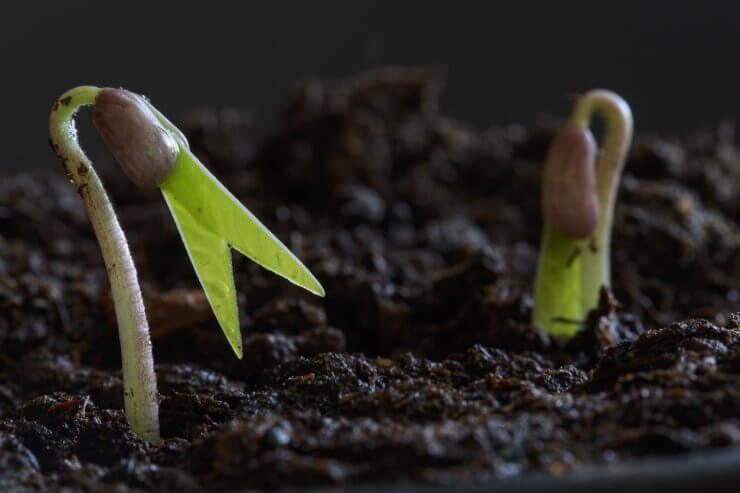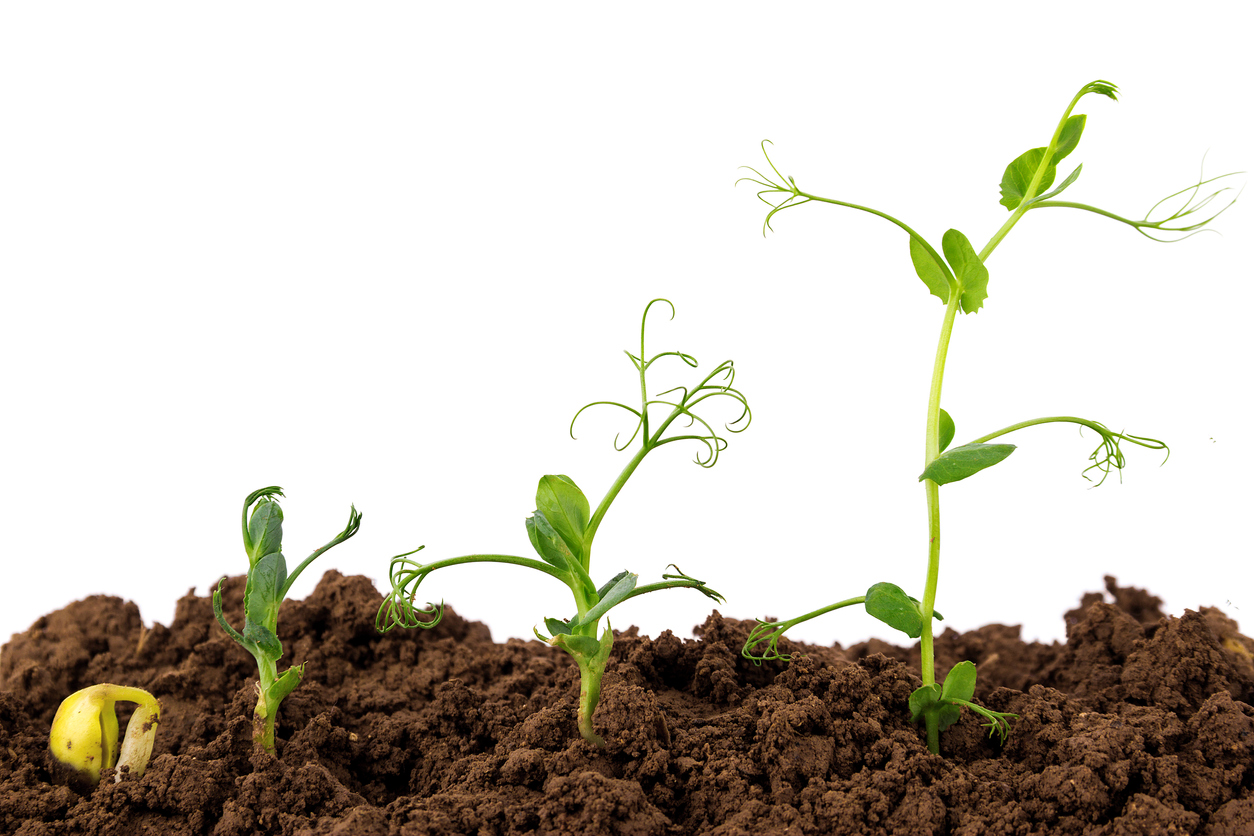
I know. Epigeal and hypogeal germination probably won’t be the most riveting topic at your next backyard cocktail party. Hear me out, though, because plant science is pretty dang cool.
Mind you, the differences between epigeal and hypogeal germination probably won’t matter very much in what you choose to plant in your vegetable garden. So it’s not really an issue of one type of germination being better than the other or anything like that.
In fact, you could go your entire gardening life and have wonderfully diverse and successful gardens and never hear these two terms. Still, it’s always nice to know more about your vegetables. And if you ever find yourself at a gardening trivia night, you’re sure to win with this knowledge.
Discover 7 top tips for growing, harvesting, and enjoying tomatoes from your home garden—when you access the FREE guide The Best Way to Grow Tomatoes, right now!

What your plants want you to know about epigeal and hypogeal germination
Let’s step away from plant roots and dig into vocabulary roots for a moment. Among other meanings, the root “epi” means above or over. Some examples would be your epidermis, which is the top layer of skin, or the epicenter of an earthquake, which is that part of the earth directly above the source.
The root “hypo” means beneath or under. So hypothermia means that your temperature is below what it should be. Or hypoglycemia is a condition caused by low blood sugar.
Lastly, “geal” relates to the earth. Put them together, and you have epigeal (above the earth) and hypogeal (below the earth). And in context, we have epigeal germination, in which the cotyledon (more on that in a sec) emerges above the ground along with the plant shoots. And we also have hypogeal germination, in which the cotyledon remains below ground.
Now, then, what is a cotyledon? It is, in essence, a source of stored food and energy for the young seedling. And in case you’re wondering, according to an article in the International Journal of Plant Sciences, published by the University of Chicago, “there is no evidence as to why the zone of growth is above the attachment of the cotyledons in one species and below it in the other.”
The primary difference between epigeal and hypogeal germinations, aside from the cotyledon, is how the plant develops to carry out photosynthesis. According to the Department of Agriculture in Kansas, with epigeal germination, the cotyledon is pulled above the soil surface and develops into the first leaves of the plant, offering both stored energy and the first photosynthetic structures.
In hypogeal germination, “the cotyledons remain below the soil surface and the primary leaves become the first photosynthetic structures, rather than the cotyledons.” Again, though, the difference as far as we gardeners are concerned seems to be nonexistent.
Right about now, you’re probably wondering which vegetables are epigeal and which are hypogeal. At least, I was wondering, so I looked some up. Purdue University reports that most cucurbits, like cucumbers, watermelon, squash, pumpkins, and muskmelons exhibit epigeal germination. For hypogeal germinations, take a look at peas or lentils.
There you have it. Will it make you change the way your garden? Probably not. Is it still cool to know more about plant biology? Heck yeah!
Do you find it helpful to know more about plant biology even if it doesn’t change the way you garden? I’d love to get your thoughts in the comments.
Discover 7 top tips for growing, harvesting, and enjoying tomatoes from your home garden—when you access the FREE guide The Best Way to Grow Tomatoes, right now!





I thought I had it down pat thinking that hypogeal germination plants were going to be potatoes and carrots, below the surface. I was wrong!
Absolutely like learning even if it seems useless at first.
agree
Find it very interesting to learn new garden facts.
I had never heard of either term and I have taken many plant classes. I learned something interesting. Thank you for sharing that bit of plant knowledge. It actually offers an explanation of how some of the garden pants grow that I had never thought of before.
Nicely done! A mini-garden epi! I’m hope excited!
pat stone
Well, may be a bit of knowledge I’ll never use, but still enjoyed learning this!